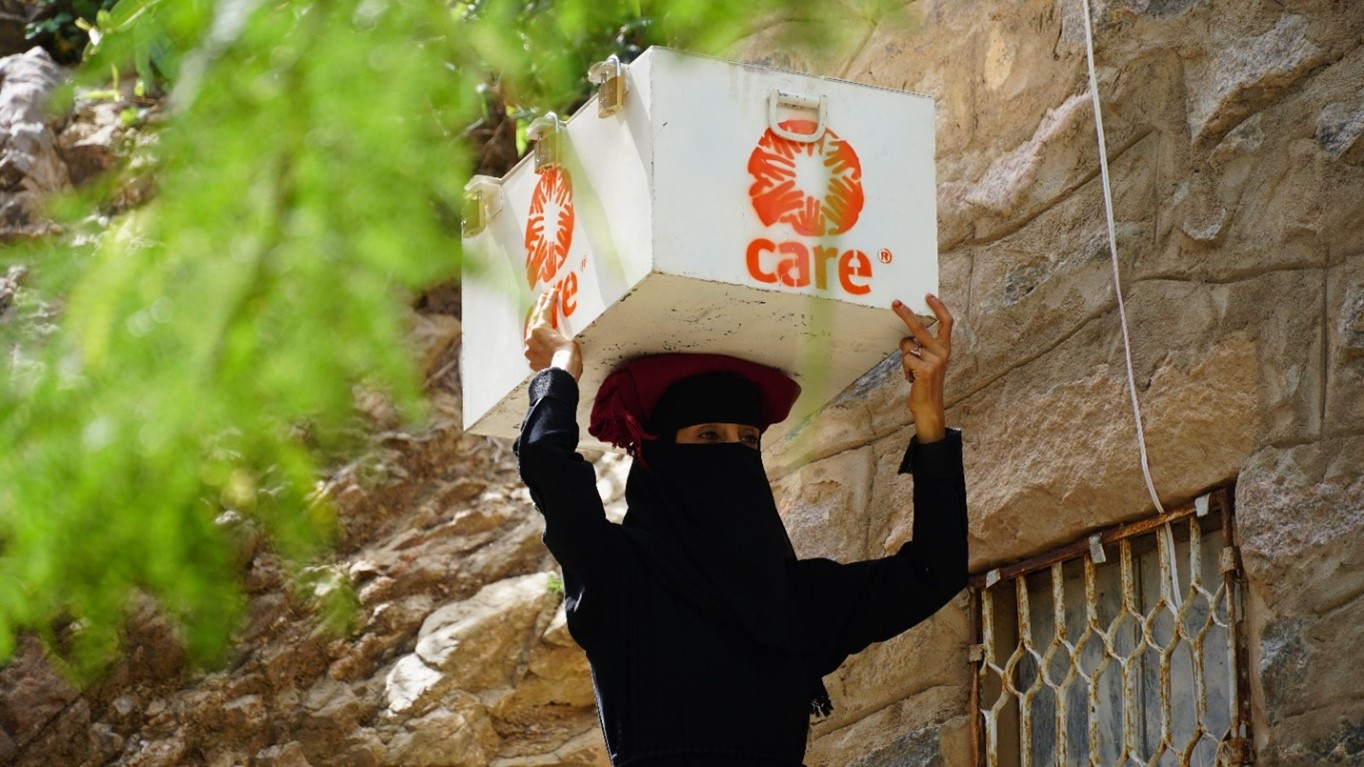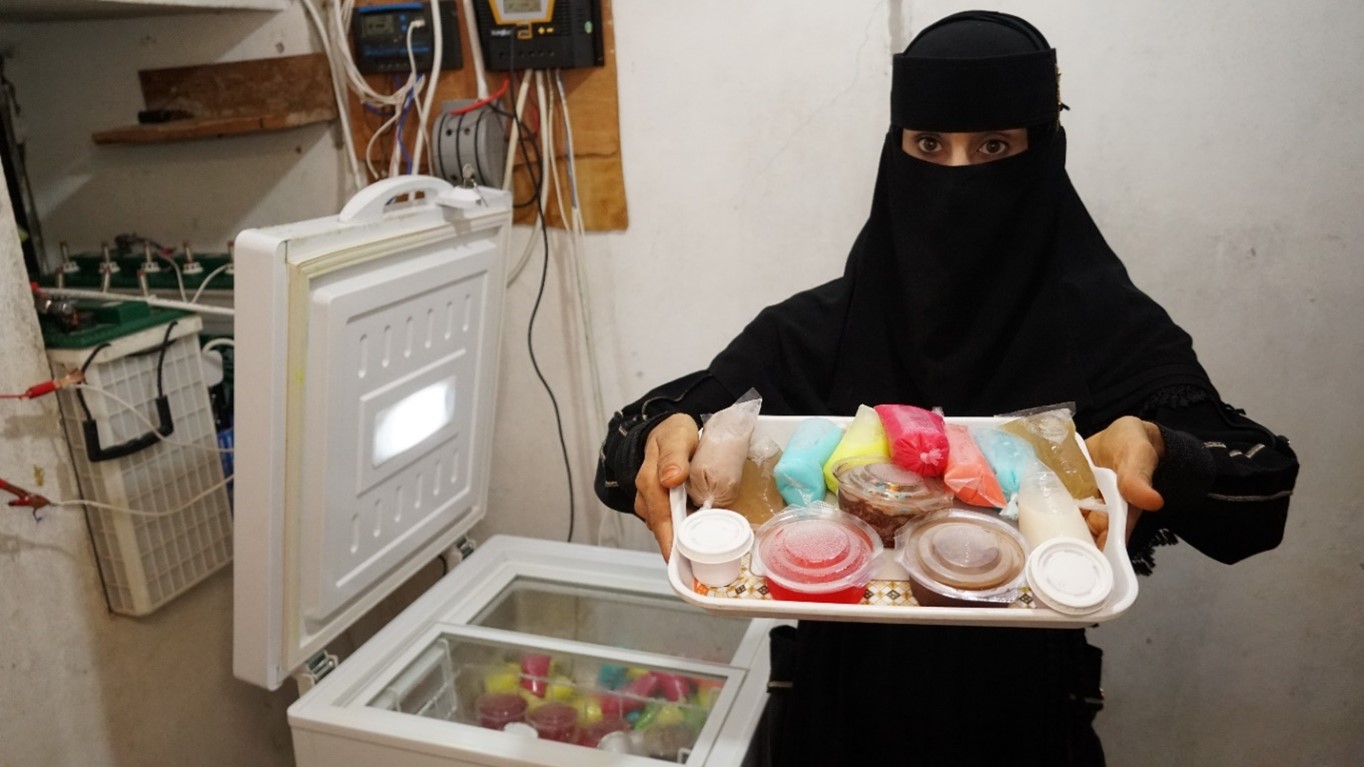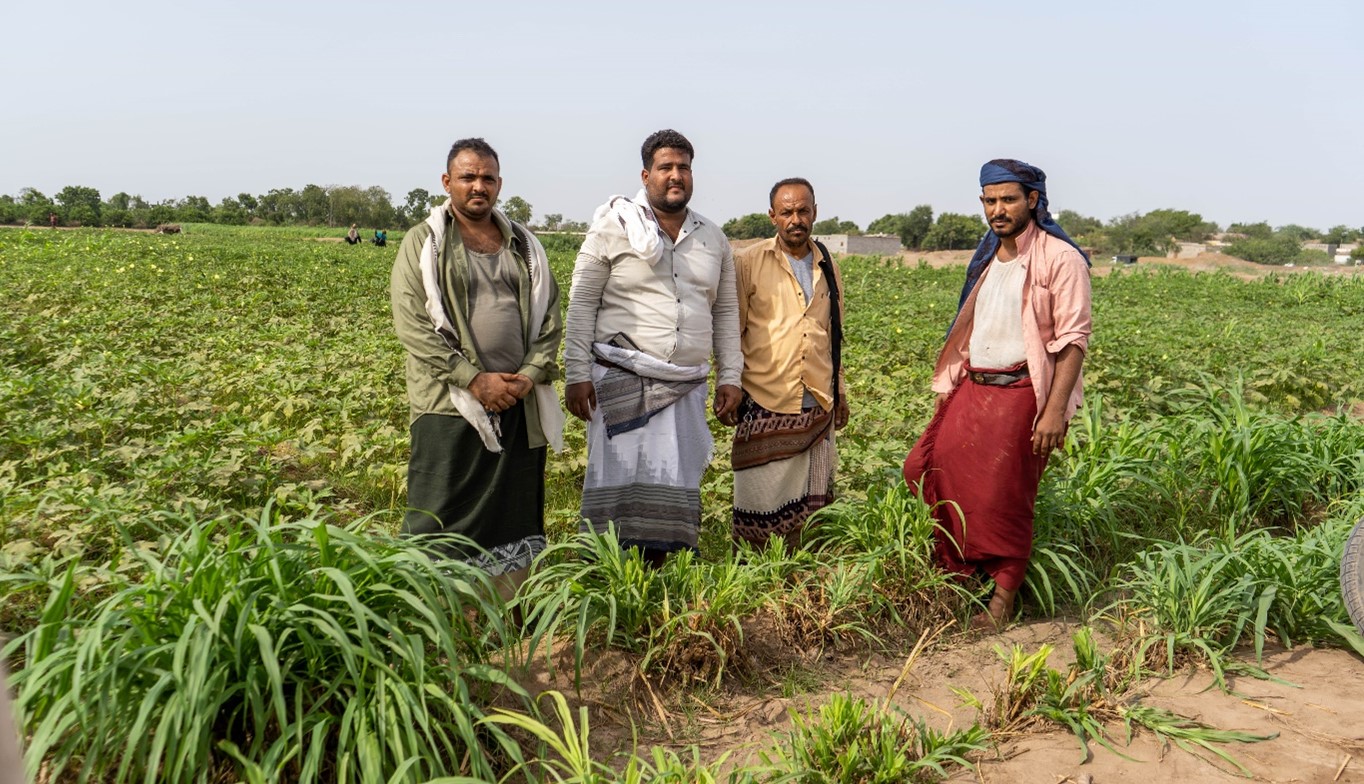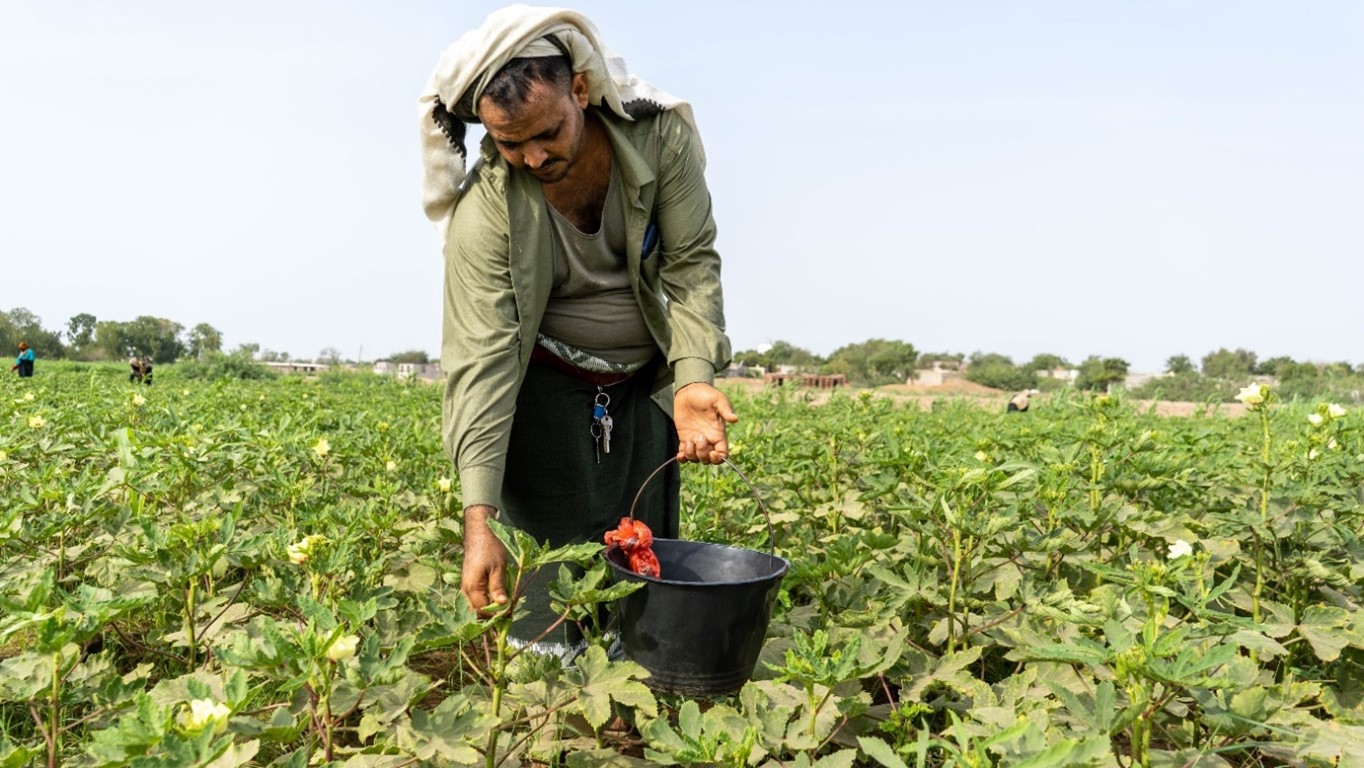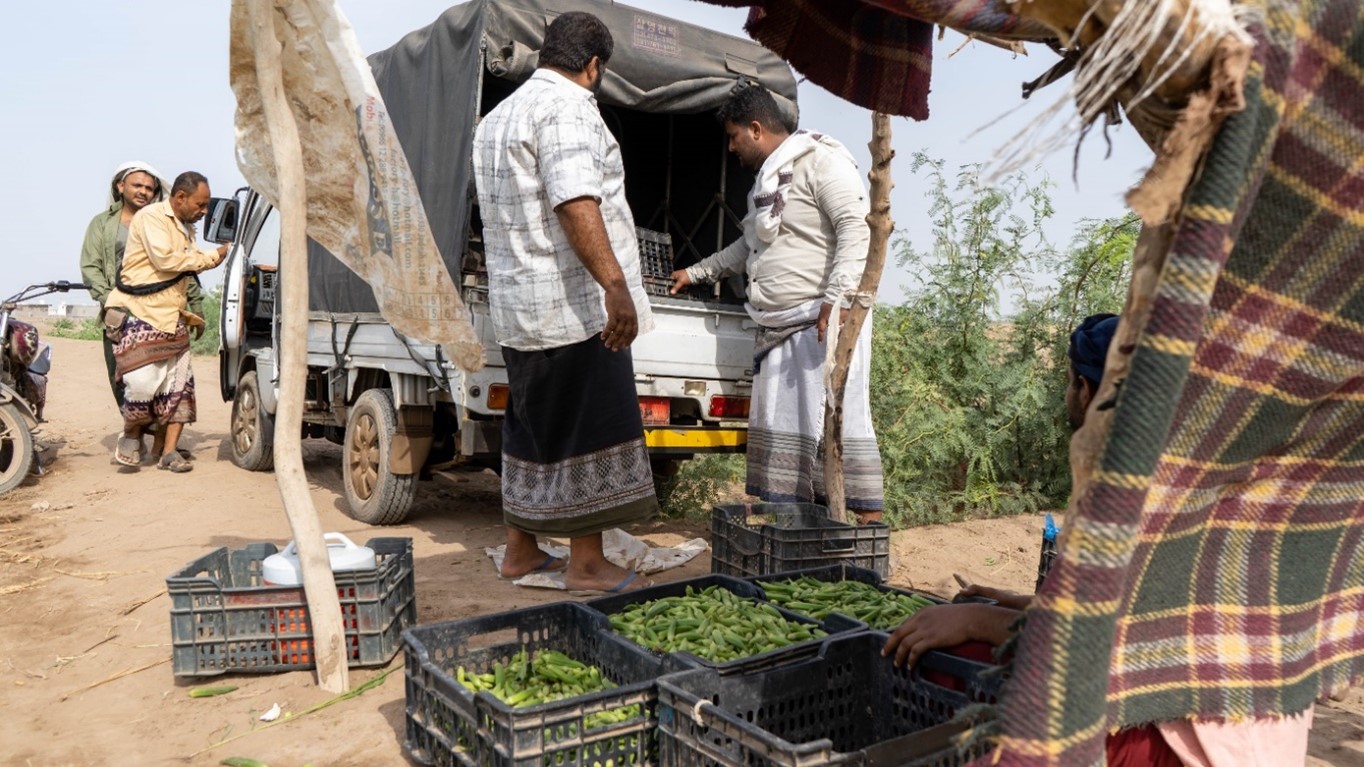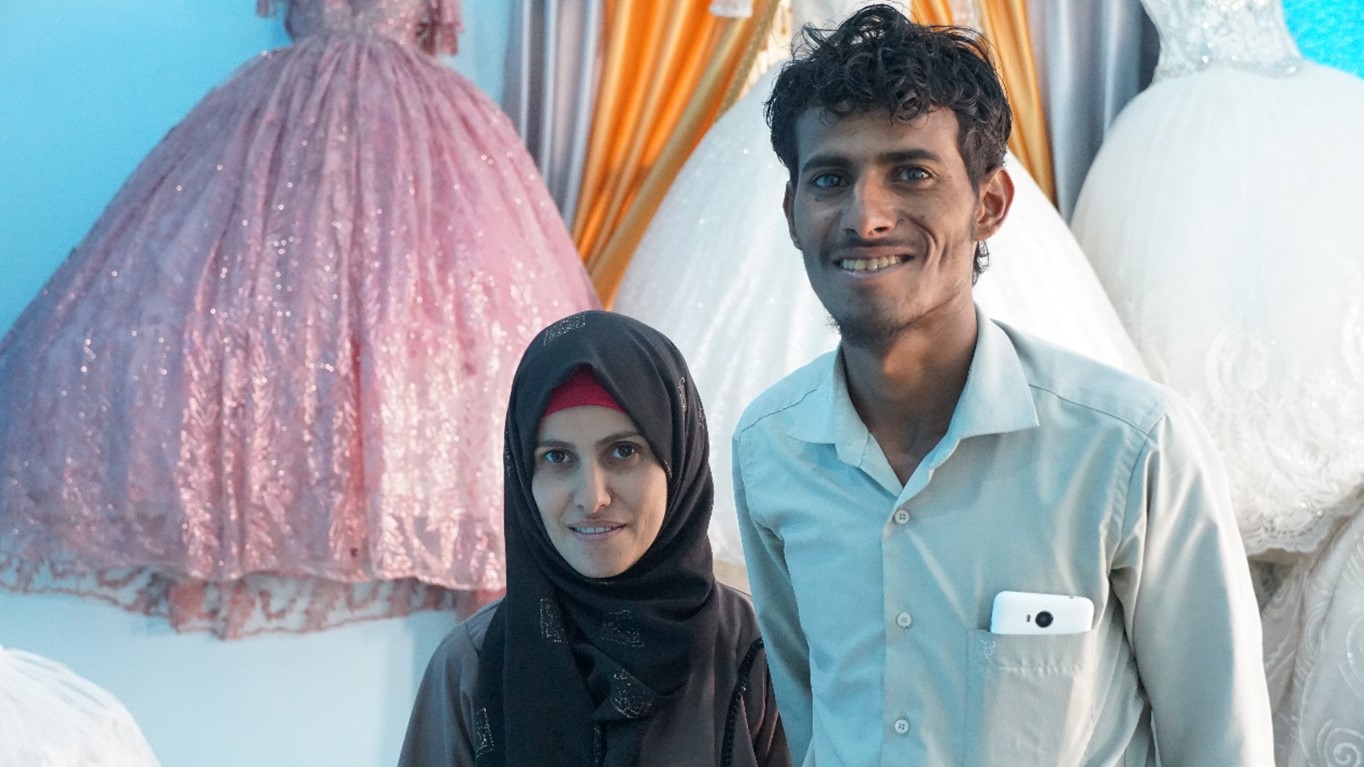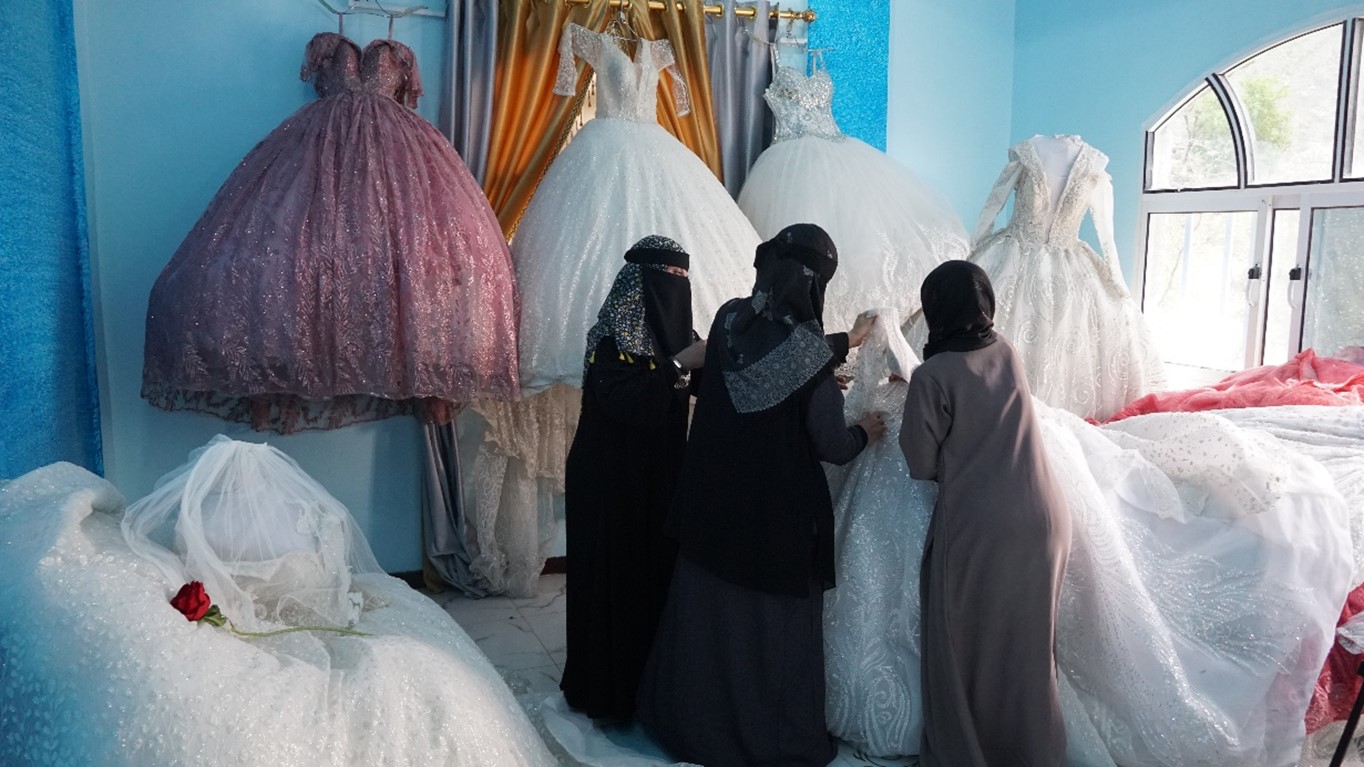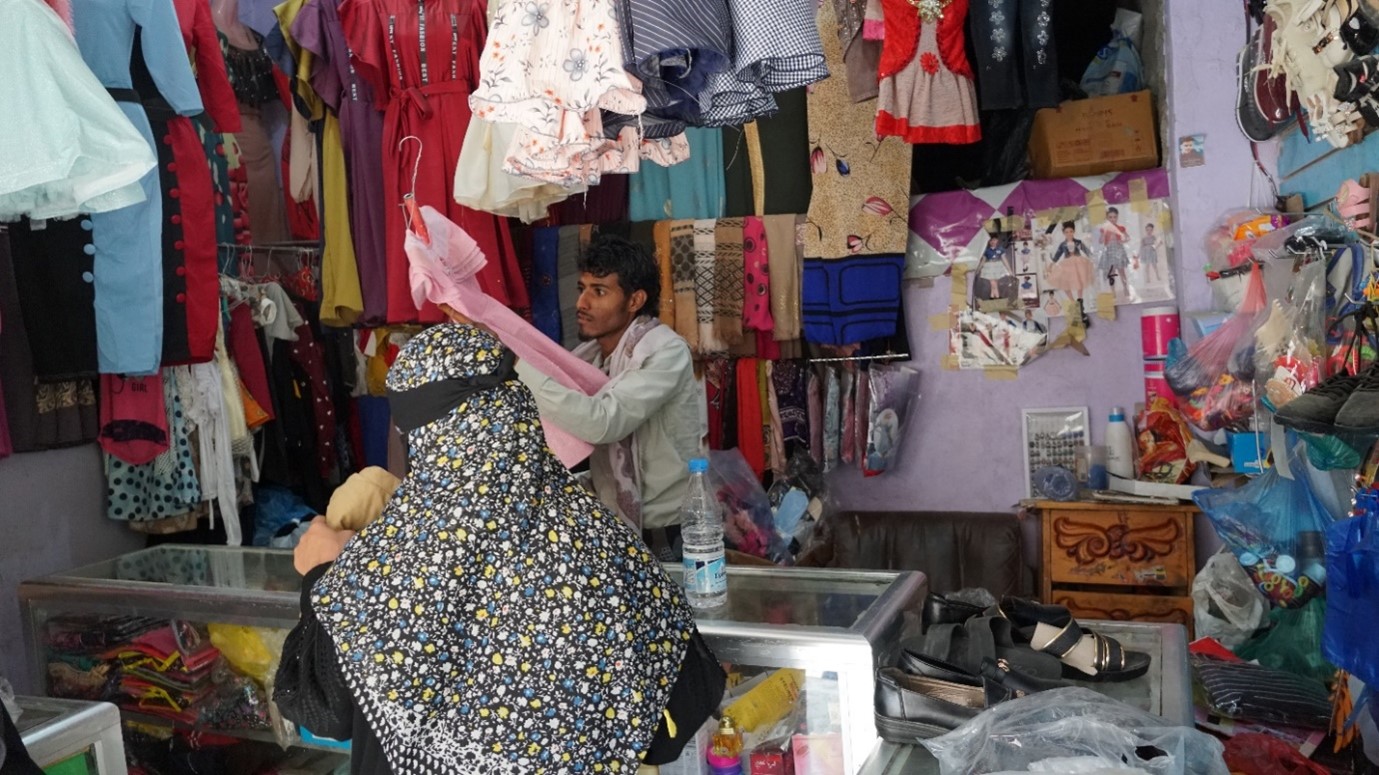CARE’s initiative of Village Savings and Loan Associations (VSLA) is one of the most dignified means of assistance. Savings groups are self-managed groups of 15-25 members from within a community who meet regularly to save their money in a safe space, access small loans to cover expenses such as school fees or invest in small income-generating activities and obtain emergency funds to face shocks and crises. In Yemen, CARE has been implementing the Village Savings and Loan Associations in Emergencies (VSLAiE) model, combining standard VSLAs and cash assistance to ensure that families have sustainable access to money to meet their needs, save, invest, and rebuild their resilience and become self-reliant. VSLA sparks systemic changes in humanitarian response that will have a longer-term impact for millions of families for years to come.
In Lahj Governorate, CARE has established 22 village savings and loan associations under several projects, integrating cash assistance earned from cash transfers and cash-for-work activities with the VSLA model to promote families’ access to resources and the ability to respond to crises. These groups comprise 10 to 25 individuals from the same community collaborating to pool their savings. By doing so, each member is able to borrow small amounts of money or engage in joint economic projects.
To strengthen the capacity of existing VSLA groups in Lahj Governorate, and in partnership with CARE USA, the CARE Yemen team provides them with extended technical trainings and continuous monitoring. This also includes conducting research and collecting evidence on the effectiveness of VSLAs in supporting Yemen’s war-torn micro-economy. In the period from September 2022 until August 2023, members of the 22 VSLA groups in the Maqaterah, Madaribah, and Tuban districts of Lahj Governorate received intensive training in life skills.
In this article, we shed light on the role of VSLAs in supporting Yemeni families to unlock opportunities amid economic crises.
